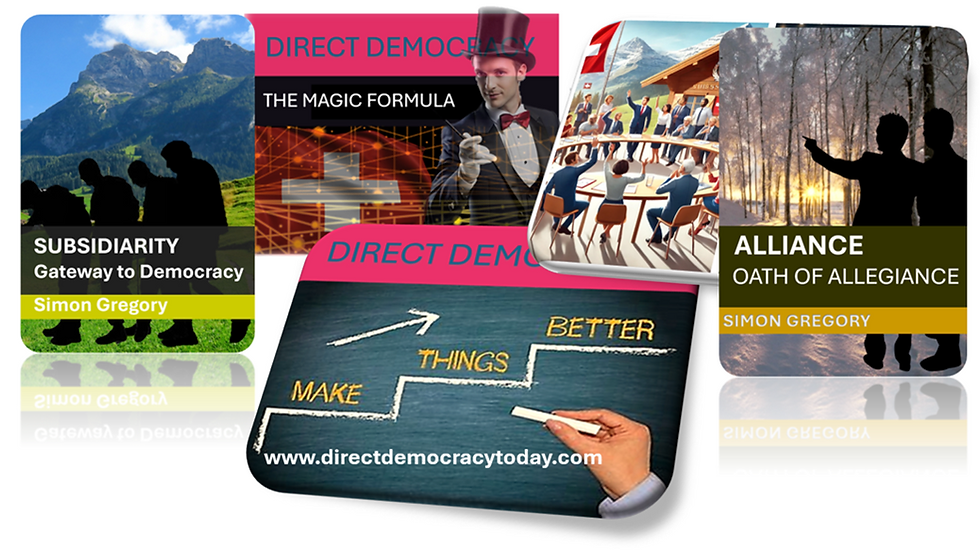What does “politics” mean in Switzerland?
- 5thavenueartist
- Sep 25, 2025
- 3 min read
To speak of politics in Switzerland is to step into a different atmosphere than the one most people breathe elsewhere. It is still politics, yes—but it belongs to another cadence, another rhythm of collective life.
It is slower, less feverish, more rooted in patience and consensus.
It feels less like a contest for dominance and more like a common act of stewardship.
If the politics of many nations is a theatre 🎭of power projected from the top down, Swiss politics is a garden tended from the ground up. 🧑🏽🌾
Here, citizens do not hand over their sovereignty to representatives and then retreat into passivity. They remain, always, at the centre of the process. 💪🏽
They vote not only for leaders, but also for laws, for constitutional changes, for decisions that will shape their children’s future.
Parties and ideologies exist, but their shadow is lighter.
The Federal Council itself—seven members drawn from across the political spectrum—is a living emblem of shared responsibility.
And because the people always have the last word, politics is less a war of parties and more a continual negotiation of what is best for common life.
For those accustomed to adversarial systems, the word “politics” may evoke images of trench warfare: lobbyists pressing their influence, parties clashing in endless combat, elections framed as battles to be won or lost. 🛡️🤺
Switzerland unsettles that picture.
Power is so dispersed, so gently diffused into the hands of citizens, that one might say it ceases to feel like politics at all 🤔. It becomes something else—civic governance, a mode of life in which the citizen is not spectator but participant.
Scholars reach for different names to capture this mystery. Some call it Participatory Democracy, others Deliberative Democracy, still others Consociational Democracy, pointing to Switzerland’s careful weaving together of diverse cultures and parties into a fabric of stability.
There is also the venerable phrase Popular Sovereignty—the reminder that ultimate power rests not with rulers👑, but with the people themselves. 🫂
And I must admit I am drawn to another, less common phrase: post-partisan governance. It hints at something profound—that beyond the theatre of parties lies a deeper democratic practice, one where citizenship itself eclipses ideology. 🌕>🌒
I think that post-partisan governance is what many today are crying out for. People are weary of the endless spectacle of division, pure charisma, empty rhetoric, soundbites, sloganeering, the noise of campaigns, fancy stage-shows, that promise change but deliver stalemate, the way ideology hardens into identity and leaves little room for nuance, humility, or truth. 🥱
People long for a politics that heals rather than fractures, that returns them to the sense of being participants in a shared civic project rather than spectators at a perpetual contest of egos.
In an age where trust in institutions is crumbling, where polarization corrodes families, friendships, and nations, the very idea that politics could be re-centred on citizenship rather than partisanship feels not only refreshing, but necessary.
It is as if the democratic soul itself is thirsting for a return to first principles: to govern together as citizens, not to conquer one another as partisans. 🫂
If we sought to compress it all into a single statement, perhaps we could say this: “In Switzerland, politics is a decentralized, participatory act, where civic engagement continually outshines partisan struggle.”
I find that definition beautiful.
Many who encounter Swiss democracy for the first time feel the same. Yet for those who live under the dominant form of government in today’s world—representative democracy—it feels almost otherworldly, as if politics had been reimagined.
And when I compare the two, I know where my own sympathies lie..




Comments